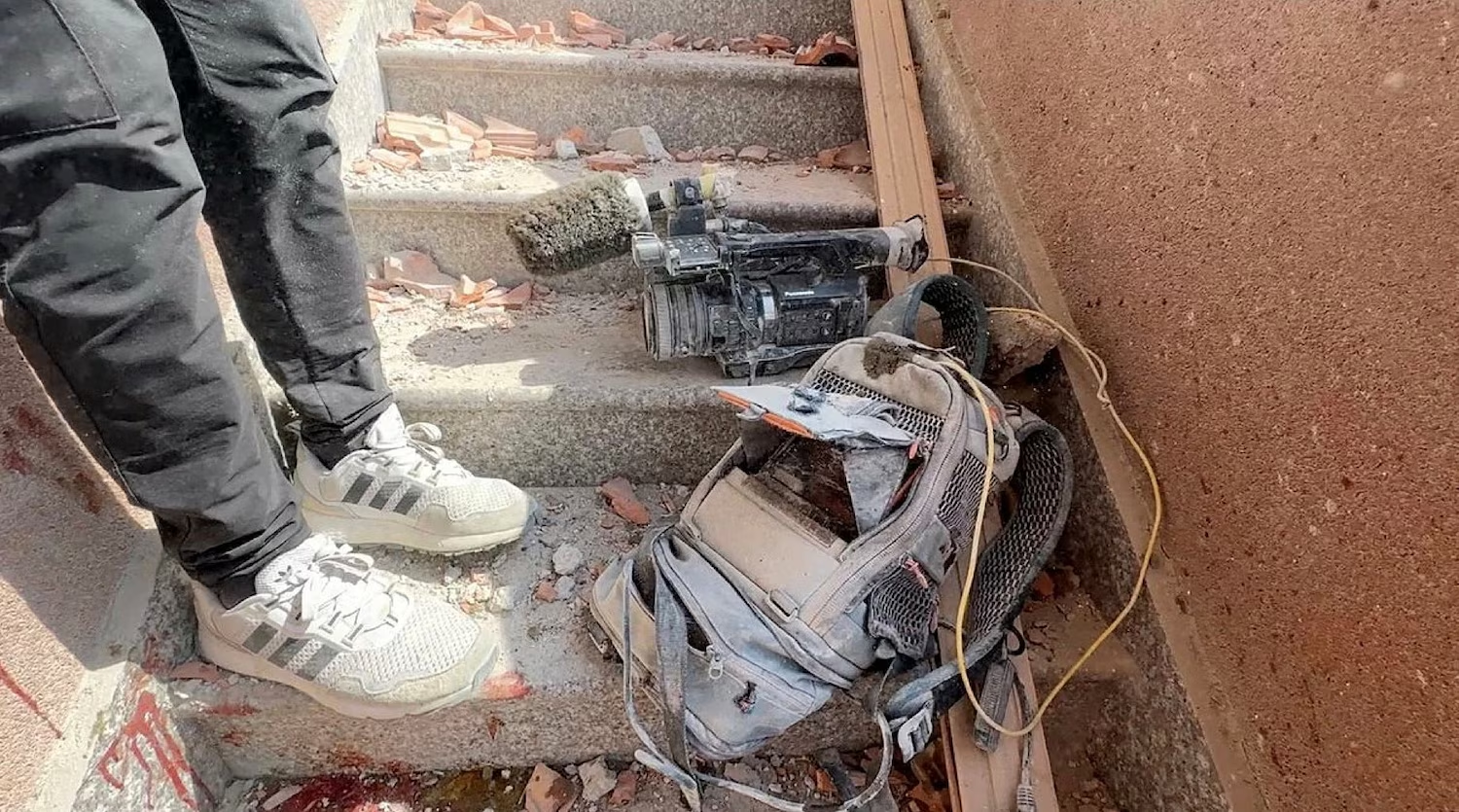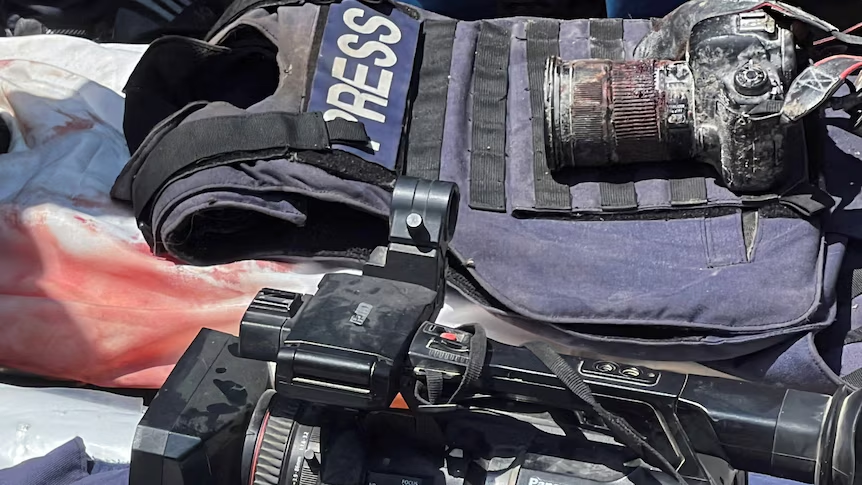- Gaza, Genocide
We write to you today with a profound sense of grief and urgent call for action. The ongoing and globally broadcasted genocide in Gaza has become the deadliest conflict in modern history for journalists. Since October 7, 2023, the Committee to Protect Journalists (CPJ) and the International Federation of Journalists (IFJ) have reported that the number of Palestinian journalists killed in Gaza is well over 200, a figure that far exceeds the total number of journalists killed globally in the previous three years. This is not a coincidence; it is part of a systematic targeting of all voices that challenge the dominant narrative by the Israeli leadership and its international supporters. On a weekly basis, we wake up to the news of the killing of our colleagues, journalists, media-makers and content creators, who have been subjected to unprecedented inhumanity. This is not just tragic for the Palestinians or the media sector, but for the world at large that needs authentic, fact-based and reliable information from Gaza, that includes the Palestinian perspective.

Equipment used by Palestinian cameraman Hussam al-Masri (Reuters) at the site where he was killed in an Israeli strike on Nasser Hospital in Khan Younis, southern Gaza Strip.
Yehya Sbieh, a freelance journalist, was killed hours after becoming a father. Fatima Hassouna, a photojournalist, was killed alongside ten family members in a targeted airstrike on their home. On August 10th, an Israeli missile struck a tent assigned for journalists, killing five reporters: Anas Al-Sharif, Mohammed Qreiqeh, Ibrahim Zaher, Mohammed Noufal, and Moamen Aliwa. A journalism student, the nephew of Anas Al-Sharif, was also killed in the attack. Only in the last week, Khaled al-Madhoun, broadcasting journalist; Hossam al-Masri, a freelance photographer; Mariam Abu Daqqa, freelance journalist; Moaz Abu Taha, correspondent; and Mohamad Salama, press photographer; were killed by an Israeli military strike, that also killed 15 other people, in addition to these five journalists. These are just some examples, of killed reporters that represent the systematic erasure of the truth, silencing the voices that bear witness to the reality on the ground
The struggle to report extends beyond physical harm, and into digital spaces. The killing on the ground is mirrored by the erasure of Palestinian voices online. RNW Media and its partners have been documenting how the digital rights of Palestinians have faced an unprecedented crackdown, though, restrictions imposed on online expression, increased surveillance, and heightened compliance by social media platforms with Israeli censorship requests.

Flak jackets and cameras are placed on the bodies of journalists killed in Gaza. (Reuters: Stringer)
The intentional targeting of journalists, media-makers, and digital content creators is a grave violation of international humanitarian law. Yet, in Gaza, we see this fundamental principle being disregarded with absolute and shameful impunity. The world must not allow this systematic campaign to muzzle the voices of local media and journalists. The absence of independent, on-the-ground reporting has created distorted and dehumanised narrative(s), where the human toll is reduced to numbers. We strongly call on governments and international bodies to publicly condemn the targeting and killing of Palestinian journalists, demand independent investigations, and urge for immediate accountability that is applied equally to all parties in this genocide.
At RNW Media, we stand in solidarity with the Palestinian journalists, both professional and citizen journalists, facing unimaginable risks. Through RNTC, our training centre, and The Vine, our global network of public interest digital media makers, we offer a space for connection, learning, reflection, and support among peers navigating similar challenges. We also continue to partner with local digital media actors in Palestine and the region and offer financial and technical support where we can. We are also working alongside allies to raise awareness, generate evidence, and engage digital platforms on their responsibility to protect journalistic voices and facts globally.
These efforts, however, are not enough on their own.
We call on other media organisations, donors, civil society, and individuals to join RNW Media in this collective responsibility to strongly condemn the indiscriminate attacks on, and killing of journalists in Gaza, and censoring of Palestinian voices online with impunity, and demand urgent action to protect and preserve press freedom in Gaza, both on the ground and in digital spaces.
Additional resources:
1. Safeguarding Palestinian Digital Rights in the EU Policy Framework
We use cookies to enhance your browsing experience and analyze our traffic. By clicking “Accept & Close”, you consent to our use of cookies. Please see Cookie Policy